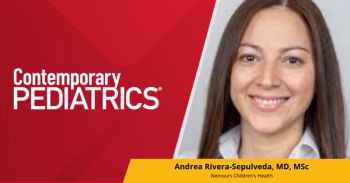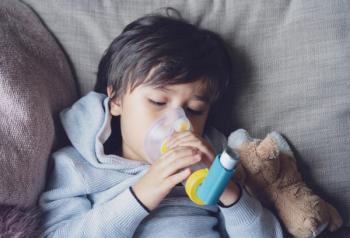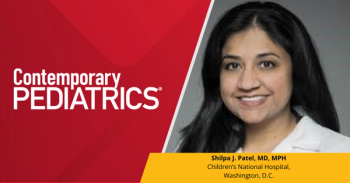
School-Based Asthma Education: Can Pediatricians Help Ensure Its Success?
Researchers at the University of California, San Francisco, Institute for Health Policy Studies found that school-based asthma education does improve self-management behaviors; however, it has less consistent effects on health outcomes.
Providing asthma education in school is especially appealing because children are accustomed to receiving instruction in this setting and school-based programs encourage self-management behaviors. Researchers at the University of California, San Francisco, Institute for Health Policy Studies found that school-based asthma education does improve self-management behaviors; however, it has less consistent effects on health outcomes.
Coffman and associates1 conducted a systematic review of studies of school-based asthma education programs. More than 350 articles were screened. Of these, 24 studies were selected; 20 enrolled elementary school students, and 4 enrolled junior high and high school students. Usual care was compared with school-based asthma education in all studies except one, which compared the use of a Web-based, interactive multimedia intervention with the viewing of generic Web sites about asthma in school computer centers.
Improvements in knowledge, self-efficacy, and self-management. Of the 10 studies that measured knowledge of asthma in children who had asthma, 6 showed a statistically significant increase in knowledge with receipt of asthma education. Most of the studies that measured self-efficacy (6 of 8 studies) and self-management behaviors (5 of 8 studies) also showed a statistically significant increase with asthma education. Two additional studies showed an increase in self-management behavior in children who received asthma education: in one study, the increase was associated with the appropriate use of controller medications only, in the other study, the parents reported improvement in their child’s self-management behaviors that the child did not report.
Lesser improvements in health outcomes. Fewer studies reported favorable effects on quality of life (4 of 8 studies), days of symptoms (5 of 11 studies), nights with symptoms (2 of 4 studies), and school absences (5 of 17 studies). The authors suggest 3 possible explanations for this result:
•The education interventions may have been inadequate.
•The interventions may not have been able to overcome barriers to asthma management in the school setting.
•Improvements in knowledge, self-efficacy, and self-management may not be sufficient to improve health outcomes. The child may require better medical care or a healthier environment. Previous studies have suggested that controller medications are underused, especially in low-income urban areas. Exposure to irritants (such as cigarette smoke) in the home environment could negate any positive effects of an asthma education program.
Study limitations. The authors note several potential weakness of their study, including wide variations in asthma education programs and target populations, a lack of a precise definition of “usual care,” the inclusion of many children with mild asthma (which may have limited the effects on health outcomes), inadequate statistical power in some studies, and overstatement of the impact of school-based programs by some studies.
How primary care providers can help. In a commentary on this article, Frankowski2 of Vermont Children’s Hospital in Burlington notes that benefits gained from school-based asthma education programs are contingent on the involvement of primary care providers. She writes, “students can be knowledgeable about their asthma, but if their primary care physician does not prescribe the right medications, the student loses that benefit.” A lack of cooperation of providers at various levels has been reported in many school-based asthma programs, yet this cooperation is needed to help children manage their asthma.
Dr Frankowski acknowledges that ensuring positive change for children with asthma may require a greater coordination effort on local, state, and national community levels. In the meantime, pediatricians can take the following steps to help increase self-management education while simultaneously reducing morbidity with appropriate medical care and pharmacotherapy:
•Provide written asthma action plans for their patients and the school nurse. The National Heart, Lung, and Blood Institute guidelines have examples of asthma action plans.
•Explore what resources for asthma education exist at their local schools.
•Reach out to their community resources for asthma self-management education. Student nurses, medical students, or pediatric residents may be able to co-teach an asthma program with the school nurse.
•Be aware of state laws and school policies about in-school asthma care.
More motivated pediatricians can consider participating in the
REFERENCES:
1. Coffman JM, Cabana MD, Yelin EH.
2. Frankowski BL. Asthma Education:
Newsletter
Access practical, evidence-based guidance to support better care for our youngest patients. Join our email list for the latest clinical updates.






